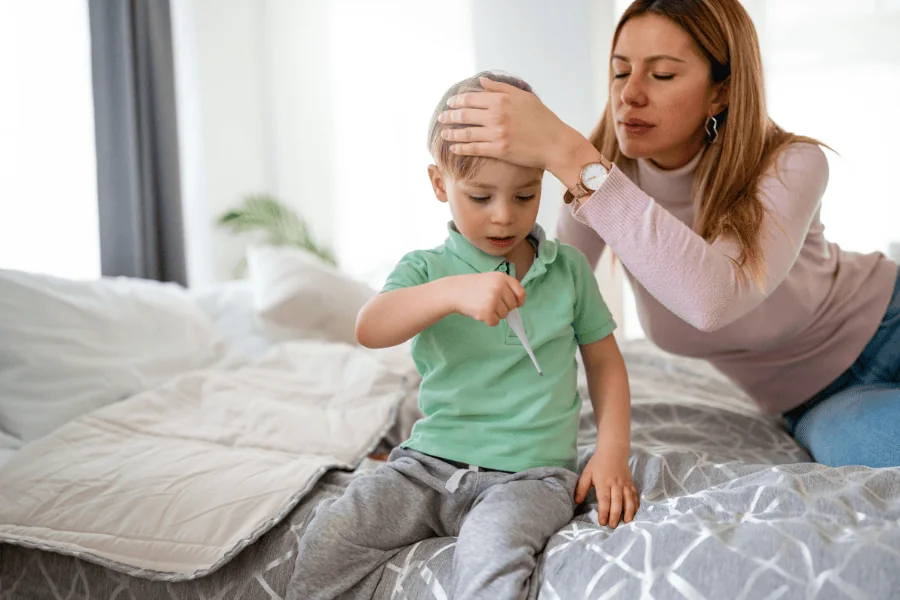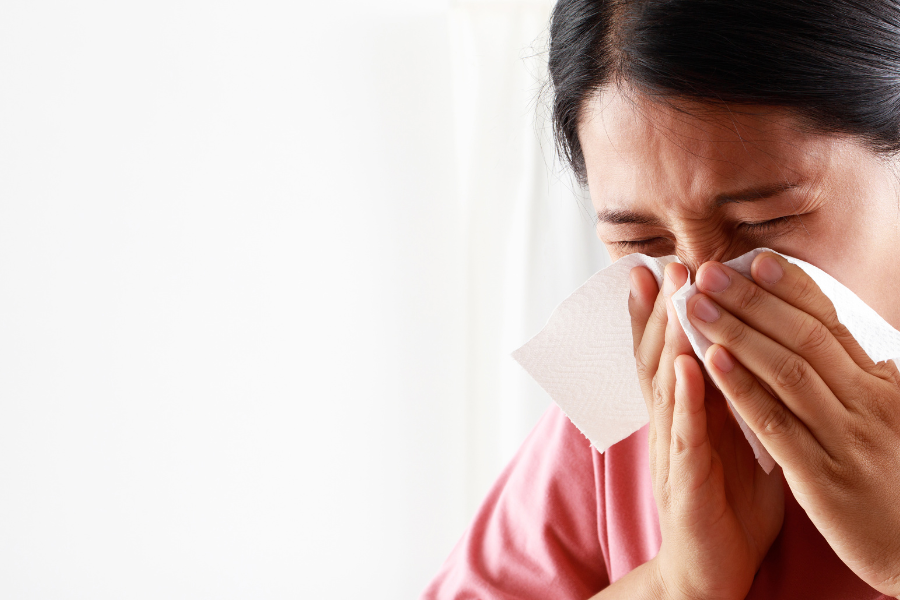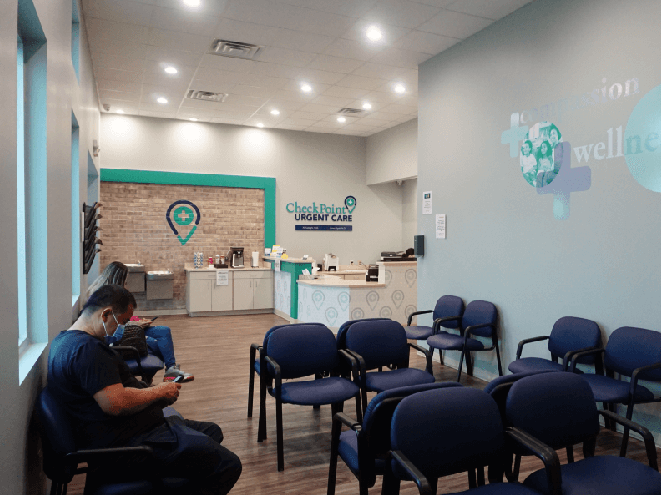As parents, we want the best for our children, including their education and well-being. However, there are times when keeping your child home from school becomes a crucial decision, especially during seasonal illnesses. At CheckPoint Urgent Care, we understand the importance of your child’s health and the need for proper guidance during these times.
When To Keep Your Child Home From School
We aim to help you through the process of determining when it’s appropriate to keep your child home to ensure their health and the health of their classmates.
Understanding Seasonal Illnesses
Seasonal illnesses can vary depending on the time of year. Common culprits include the flu, colds, allergies, and stomach bugs. They are highly contagious and can quickly spread within school communities, making it essential to know when to keep your child home.
Fever
One important sign that your child should stay home from school is if they have a fever. A fever usually means their body is trying to fight off an infection. While the exact temperature for a fever may vary, as a general rule, if their temperature is 100.4°F (38°C) or higher, it’s a clear sign they should stay home.
Fever can be a symptom of different illnesses like the flu, strep throat, or other contagious diseases. When you keep your child home with a fever, it helps them get better faster and stops them from spreading the illness to their classmates.
Respiratory Symptoms
Seasonal illnesses often show up with breathing problems like coughing, sneezing, and a runny nose. Not all breathing problems mean your child should stay home, but some should be taken seriously:
- Severe Coughing: If your child has a really bad cough that keeps them from focusing or doing school stuff, it’s better to keep them home until the cough gets better.
- Excessive Sneezing and Runny Nose: If your child keeps sneezing and has a runny nose, and also has a fever, feels very tired, or has other worrying signs, you should talk to a doctor and keep them home until they feel better.
Gastrointestinal Symptoms
Stomach bugs are common among children, and they can cause symptoms like nausea, vomiting, diarrhea, and abdominal pain. If your child is experiencing any of these symptoms, it’s best to keep them home from school to prevent the potential spread of the illness to others.
Children with gastrointestinal symptoms should stay home until they have been symptom-free for at least 24 hours, without the use of medications like anti-nausea or anti-diarrheal drugs.
Contagious Infections
Certain contagious infections, such as strep throat or pink eye (conjunctivitis), can spread easily in a school setting. If your child is diagnosed with a contagious infection, it is crucial to follow the healthcare provider’s instructions regarding isolation and when it’s safe for your child to return to school.
Fatigue and General Malaise
Seasonal illnesses can take a toll on a child’s energy levels and overall well-being. If your child is feeling extremely fatigued, weak, or generally unwell, it may be best to keep them home to allow their body the necessary time to recover.
When in Doubt, Consult a Healthcare Provider
It’s not always easy to determine whether your child should stay home from school based solely on their symptoms. In some cases, it may be necessary to consult a healthcare provider like CheckPoint for guidance. We can help you assess the severity of your child’s illness and provide treatment recommendations and when it’s safe for them to return to school.
Preventing the Spread of Seasonal Illnesses
Preventing the spread of seasonal illnesses in schools is a collective effort. While it’s crucial to keep your child home when they are unwell, there are also proactive steps you can take to reduce the risk of illness for your entire family:
- Vaccination: Ensure that your child is up-to-date with recommended vaccinations, including the flu vaccine. Vaccination helps protect not only your child but also the community by reducing the spread of infectious diseases.
- Hand Hygiene: Teach your child the importance of proper handwashing with soap and water for at least 20 seconds, especially before meals and after using the restroom. Hand sanitizer with at least 60% alcohol can be used when soap and water are not readily available.
- Respiratory Etiquette: Teach your child to cover their mouth and nose with a tissue or their elbow when coughing or sneezing. Encourage them to dispose of used tissues properly and wash their hands afterward.
- Disinfecting Common Areas: Regularly disinfect frequently touched surfaces in your home, such as doorknobs, light switches, and countertops.
- Stay Informed: Keep yourself informed about outbreaks of contagious illnesses in your community. Follow guidance from local health authorities and schools regarding safety measures and school closures, if necessary.
CheckPoint Urgent Care Is Here For You
To keep your child and their classmates healthy, it’s important to make smart choices about when to keep your child home from school. Illnesses like the flu, colds, and stomach bugs can easily spread at school. But by knowing when to keep your child home and getting advice from a doctor if you’re unsure, you can help keep your child and others safe. At CheckPoint Urgent Care, we prioritize your child’s health and well-being and are here to provide support and medical advice when you need it. Let’s team up to make sure our schools stay healthy, and our kids stay well.








